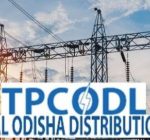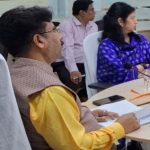J&K is an inalienable part of India. There are no two versions about that: Amit Shah
Repealing article 370 is not a historic blunder, rather it is historic step to correct this historic blunder: Union Home Minister
Parliament is the highest and fully competent body to make laws and bring resolutions regarding a state of India including J&K I want to assure the people of J&K that the status of State would be restored once the situation normalises: Amit Shah
New Delhi: The Parliament Tuesday passed the two bills and two resolutions piloted by union home minister Amit Shah paving the way for making Jammu & Kashmir as an integral part of India by repealing the Article 370 of the Constitution of India.
Shah, introduced two bills and two resolutions regarding Jammu & Kashmir (J&K) in Lok Sabha today. These are as follows:
- Constitution (Application to Jammu & Kashmir) Order, 2019 {Ref. Article 370(1) of Constitution of India} – issued by President of India to supersede the 1954 order related to Article 370.
- Resolution for Repeal of Article 370 of the Constitution of India {Ref. Article 370 (3)}
- Jammu & Kashmir (Reorganisation) Bill, 2019 {Ref. Article 3 of Constitution of India}
- Jammu & Kashmir Reservation (2nd Amendment) Bill, 2019 {Home Minister withdrew the Bill from both Houses as the provisions of this act would become applicable to J&K once article 370 gets repealed and the laws of Union of India become applicable there}
The Bills and Resolutions were approved by the Parliament after a heated debate on the issue of the procedure in which the Article 370 is repealed.
The home minister explained that the Article 370 (3) provides President of India has the powers to amend or repeal the article by issuing a notification, based on a recommendation of Constituent Assembly of J&K. President of India signed the Constitution Order 2019 yesterday regarding Article 370(1), under which all the provision under article 4 would be applicable to J&K. J&K constituent assembly would be read as J&K Legislative Assembly. Similar changes to article 370 have been done in the past as well.Now since President’s rule is in force in the state, implementation of article 370 would cease to exist when President of India issues the notification in this regard, after this House passes the resolution.
Replying to the debate, Shah stated,”I want to state that J&K is an inalienable part of India. There are no two versions about that”.Parliament is the highest and fully competent bodyto make laws and bring resolutions regarding a state of India including J&K. There can be no question to this power of the Parliament. Shah said that for 70 years, people of India have harboured this aspiration in their hearts that Kashmir must be an integral part of India. Article 370 was the only roadblock to realize this goal. Home Minister thanked the Prime Minister for this historic step to remove this roadblock for ever.
Leader of Main Opposition
Party in Lok Sabha raised the issue of how the Centre can take this step
unilaterally when Kashmir is a bilateral issue between India and Pakistan and
when the matter is pending in UN.
To this, Shri Shah retaliated and challenged the opposition that they must
clarify their stand on the floor of the House whether they support UN
meditation in Kashmir.The opposition in a way has questioned the competence of
the Parliament by raising this point, he stated.
The Home Minister appealed to the House to once again ponder on all these points and join hands with the Government to bring the people of J&K in the mainstream of development.
The Bills and Resolutions were then passed in the Lok Sabha.





